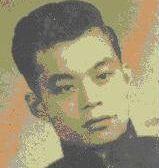Shanghai resident Shan Miaofa’s father was executed during the Cultural Revolution for being a “counter-revolutionary.” He has asked for a redress for several decades, but to no avail. Due to his father’s crime, none of his family members could get a formal job.
“I have no income source now. My whole family relies on my wife’s retirement pension. Our house that was confiscated back then has never been returned to us. My family has to squeeze into a 130-square-foot room,” said Shan Miaofa. “We were beaten and kicked when we tried to appeal. We asked for jobs and welfare, but were ignored. In the past, at least I had a small livelihood, but because I appealed, the government is retaliating. Now even my small stipend has been suspended.”
Life-long suffering from various forms of persecution made Shan recognize the nature of the Chinese Communist Party (CCP). He is very supportive of the massive tide of party withdrawal. “It is very good,” he said. “The tide of party withdrawals says that the 1.3 billion Chinese people want to say something they dare not; do what the 1.3 billion Chinese people want to but dare not. This movement walks in the forefront of democracy in China, and I firmly support it.”
Frenzied Time, Ridiculous Verdict
Shan’s father Shan Songlin was a worker at the Shanghai No. One Pharmacy Factory. He was arrested for being a counter-revolutionary on March 10, 1967, and was detained in the former Shanghai No. One Detention Center, until he was executed on August 28, 1967.During detention, Shan’s family had no contact with the father. The Shanghai Intermediate People’s Court and Higher People’s Court followed no legal procedure during the entire trial. All were black-box operations. The family did not know of Shan Songlin’s trial or detention, or even the details behind his supposed counter-revolutionary actions.
At around 1p.m. on August 28, 1967, the Shanghai government organized a sentencing rally where tens of thousands gathered in the Culture Plaza at Sha'anxi South Road in Shanghai. It was broadcast live to various work units across the city.
Immediately after, the Shanghai Intermediate People’s Court sentenced the labeled counter-revolutionary Shan Songlin to death. Shan’s family only learned of the execution at 7p.m. that evening.
“In that era of madness, some crazy and ignorant people took frenzied moves towards us on that night. They regarded my family as outcasts. The whole street was filled with mad and ignorant people. They raised their arms and shouted loudly, ‘Down with counter-revolutionary Shan Songlin,’ ‘Execute counter-revolutionary Shan Songlin,’ etc. The door of our home was damaged, and all our windows were smashed,” remembers Shan Miaofa.
Public security officers posted the death sentence announcement on the wall in front of the Shan home to humiliate the family.
Whole Family Persecuted
Shan Songlin was only 38 years old when he was executed, leaving his wife and four young children. Because of his sentence, the entire family was treated inhumanely and unjustly, enduring years of persecution and humiliation.
His mother was labeled a “stinky anti-revolutionary woman,” and the four brothers were called “wicked anti-revolutionary puppies.” Anyone could pour feces on them or physically assault them, and they were very often cursed and beaten. After his dad was executed, their original 2-bedroom home was confiscated by the government. This five person household had to squeeze in their grandmother’s back living room, which was less then 70 square feet.
Their family also endured endless house raids by the red-guards. Shan’s mother was forced to kneel before Chairman Mao’s picture to apologize for the debt caused by his father. Even his father’s pictures and other family photos were confiscated and destroyed.
At that time, his mother couldn’t cry for her husband in front of the family. In the middle of the night, the children were often woken up by their mother’s miserable crying. Many times Shan’s mother came close to committing suicide, but managed to endure because of pleas from the four children.
At work, Shan’s mother was given the heavy labor that no one else wanted. In 1977, she fell from scaffolding which caused fractures in five places, including her femur, patella, and lumbar spine. She became permanently handicapped.
More Persecution When Calling for Justice
After the Cultural Revolution, from 1979 to 1986, his mother wrote numerous letters to the local government to appeal for Shan’s father. However, she was turned down by the court. The court insisted on keeping the original verdict. On July 22, 1999, she passed away due to heart problems, leaving a world that had tormented her for years.
On August 29, 2006, Shan Miaofa went to Beijing to appeal for his father’s unjust execution and other living issues including his family members’ inability to gain employment.
On August 30, 2006, he was stopped and checked by the policemen at Tiananmen Square. They found the banners in his bag and he was sent to the police station at Tiananmen Square. Later, Shan was arrested and sent back to Shanghai by the Shanghai Government Office in Beijing. Inside the vehicle, Shan was severely beaten and tortured for over an hour. One henchman named Ni threatened him. “If I see you again in Beijing, I will beat you until your legs are broken,” Ni said, “you will disappear forever.”
On March 25, Shan was notified by a clerk in the Hongkou District named Wu, that he could not go to Beijing to appeal, he could only solve his father’s problem through regular channels.
Since ’regular channels’ still couldn’t resolve any issue, on May 22, 2008, during the Olympic Torch Relay, Shan small posters along the busy streets of Shanghai to readdress his father’s case. On June 2, he was called into the local police station, warning him that if he dared to post anything else, he would be punished.
“As family members of a past victim of the CCP, don’t we want to resolve our father’s unjust case through regular channels?” asks Shan. “But the so-called regular channels to us mean there is no way out.”
“I am not afraid of their persecution,” added Shan. “One day if you can’t find me for an interview and can’t hear my voice, that means I’ve already lost my freedom.”




